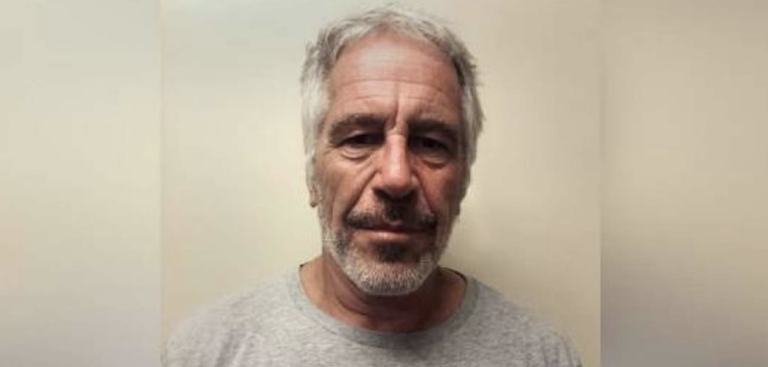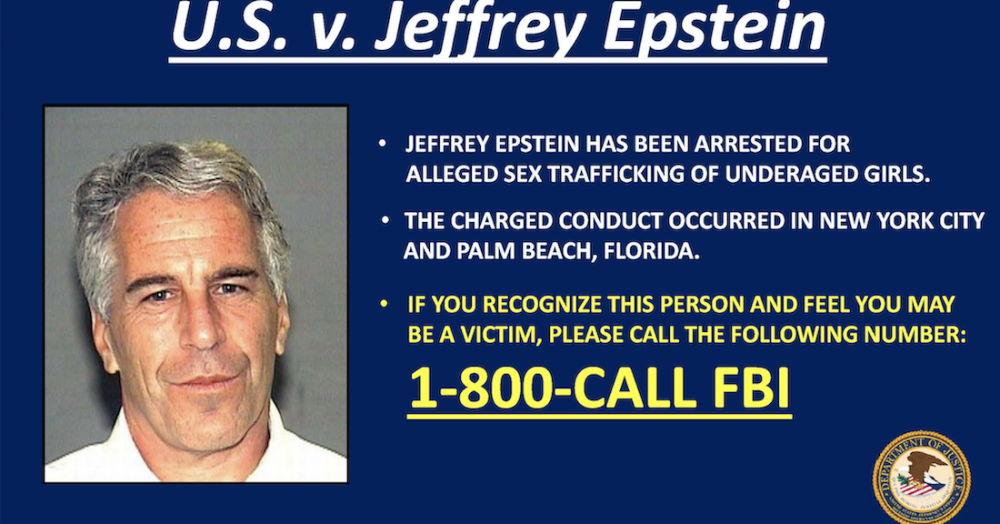
Bipartisan skepticism emerges over circumstances surrounding financier’s jail cell demise
New York, N.Y. – The death of Jeffrey Epstein in a Manhattan federal detention center on August 10, 2019, continues to generate questions that transcend traditional political boundaries.
While conspiracy theories are often dismissed as fringe thinking, the circumstances surrounding the convicted sex trafficker’s apparent suicide have prompted legitimate concerns from Americans across the political spectrum.

A Web of Powerful Connections
Epstein’s network of associations read like a who’s who of global power brokers. His flight logs and contact lists revealed connections to former presidents, British royalty, prominent businesspeople, and influential figures across industries. These relationships, documented through photographs, flight records, and witness testimonies, created a complex web of potential legal and reputational exposure.
The scope of these connections meant that Epstein’s cooperation with federal investigators could have implicated numerous high-profile individuals. This reality has led many observers, regardless of their political affiliation, to question whether powerful interests had motivation to ensure the financier never testified in court.
Federal prosecutors had described Epstein as posing an “extraordinary risk of flight” and had successfully argued against bail. The magnitude of evidence against him, combined with his previous conviction for soliciting prostitution from a minor in Florida, suggested he faced the prospect of spending the remainder of his life in prison.

Institutional Failures and Systemic Questions
The Metropolitan Correctional Center, where Epstein was housed, had not experienced a successful suicide in more than two decades.
The facility’s protocols required frequent check-ins for high-risk inmates, yet multiple systemic failures occurred simultaneously on the night of Epstein’s death.
Coincidences? Security cameras malfunctioned, guards allegedly fell asleep during their shifts, and Epstein’s cellmate was transferred hours before the incident.
The FBI and the Department of Justice’s Office of Inspector General launched separate investigations into these failures, but their findings have done little to quell public skepticism.
Attorney General William Barr himself expressed anger at the “serious irregularities” at the facility, stating that Epstein’s death deprived victims of justice.
This acknowledgment from the nation’s top law enforcement official validated concerns that the case’s conclusion was deeply unsatisfactory.
Beyond Partisan Conspiracy Theories
The questions surrounding Epstein’s death cannot be dismissed simply as products of political bias or conspiracy thinking. Legitimate concerns about the case have been raised by legal experts, journalists, and public officials from across the political spectrum.
Democratic lawmakers and progressive commentators have expressed skepticism about the official narrative, particularly given Epstein’s documented connections to Donald Trump and other conservative figures. Similarly, Republican voices have questioned whether powerful Democratic politicians and Hollywood elites had motives to silence the financier.
This convergence of concern suggests that the Epstein case represents something more significant than typical partisan disputes. The questions raised touch on fundamental issues of justice, accountability, and the extent to which wealth and power can influence the legal system.
The Victims’ Perspective
Lost in much of the political speculation are the voices of Epstein’s victims, many of whom have expressed frustration that his death prevented a full accounting of his crimes. These survivors, represented by attorneys including Brad Edwards and David Boies, have consistently called for continued investigation into Epstein’s network of associates and enablers.
The victims’ advocacy has helped keep focus on the substantive issues at the heart of the case, rather than allowing it to become purely a matter of political theater. Their persistence has contributed to ongoing civil litigation and has helped ensure that some measure of accountability continues even after Epstein’s death.
Ongoing Investigations and Unanswered Questions
Ghislaine Maxwell’s conviction in December 2021 on sex trafficking charges related to her role in Epstein’s operation provided some measure of justice, but many questions remain unanswered. The names of prominent individuals who may have participated in or been aware of Epstein’s activities continue to be the subject of legal proceedings and public speculation.
Federal prosecutors have stated that the investigation into Epstein’s network remains active, though the pace and scope of these efforts have been questioned by victims’ advocates and legal observers. The release of previously sealed documents has provided some additional information, but many details about the extent of Epstein’s operation and the involvement of others remain unknown.
The Broader Implications
The Epstein case has become a symbol of broader concerns about justice and accountability in American society. The perception that powerful individuals can escape consequences for their actions, whether through legal maneuvering, political influence, or more sinister means, has contributed to declining trust in institutions across the political spectrum.
These concerns are not limited to one political party or ideology. Progressive critics point to the case as evidence of how wealth and privilege can corrupt the justice system, while conservative voices highlight it as an example of elite impunity and media complicity. Both perspectives reflect genuine frustrations with perceived double standards in how justice is administered.
The questions surrounding Epstein’s death serve as a reminder that some issues transcend partisan politics. When fundamental questions about justice and accountability remain unanswered, Americans of all political persuasions have legitimate reasons for concern.
Whether Jeffrey Epstein committed suicide or was murdered may never be definitively known, but the circumstances of his death have revealed troubling gaps in our systems of justice and oversight that demand continued attention and reform.
Summary
The Jeffrey Epstein case represents one of the most significant criminal investigations of the 21st century, involving allegations of widespread sexual trafficking and potential connections to powerful figures worldwide. His death while awaiting trial has left many questions unanswered, creating a void that has been filled with speculation, legitimate inquiry, and demands for accountability that extend far beyond partisan politics.
#JeffreyEpstein #Investigation #Accountability #BipartisanConcerns
#Justice #PowerAndPrivilege #SystemicFailures #VictimsRights
TAGS: Jeffrey Epstein, federal investigation, justice system, accountability, bipartisan concerns,
Metropolitan Correctional Center, systemic failures, victims rights, political divide, institutional failure
